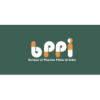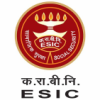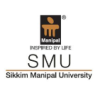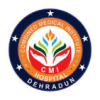Product inclusion in the medicine sector for hospitals refers to the process of evaluating, selecting, and incorporating pharmaceuticals, medical devices, and other healthcare products into a hospital's formulary or inventory. Here's a brief overview:
- Evaluation and Selection:Hospitals continually assess the medical products available in the market. This involves reviewing their safety, efficacy, quality, and cost-effectiveness. Hospitals often convene formulary committees consisting of healthcare professionals, pharmacists, and administrators to make informed decisions regarding product inclusion.
- Clinical Efficacy:Hospitals prioritize medical products that have been proven effective through clinical trials and research. These products must align with evidence-based medicine and meet specific clinical needs within the hospital’s patient population.
- Safety and Quality:Patient safety is paramount. Hospitals carefully scrutinize product quality, including factors like manufacturing standards, product labeling, and adherence to regulatory guidelines. Adverse event reporting and post-market surveillance play crucial roles in product safety assessment.
- Cost-Effectiveness:Hospitals face budget constraints, and cost-effectiveness is a critical consideration. This entails analyzing the total cost of using a product, including acquisition cost, administration, and potential savings related to patient outcomes.
- Regulatory Compliance:All products must adhere to regulatory standards and obtain necessary approvals from agencies like the Food and Drug Administration (FDA) in India. Compliance with local, national, and international regulations is non-negotiable.
- Formulary Management:Hospitals maintain formularies, which are lists of approved medical products for specific clinical conditions. Effective formulary management ensures that the right products are readily available for patient care.
- Inventory Control:Hospitals manage their inventories efficiently to minimize waste and control costs. This involves forecasting demand, preventing overstocking, and ensuring products don’t expire.
- Supplier Relationships:Strong relationships with pharmaceutical and medical product suppliers are essential. Hospitals negotiate favorable terms, including pricing and delivery schedules, to optimize procurement and maintain a steady supply of critical items.
- Ongoing Review:The inclusion of products in a hospital’s inventory is not static. Hospitals regularly review their choices, assess new product entries, and adjust their formulary to accommodate advancements in medical science and changes in patient needs.
- Patient-Centered Care:Ultimately, product inclusion in hospitals serves the overarching goal of providing high-quality, patient-centered care. The products chosen should contribute to better health outcomes and improved patient experiences.
In summary, product inclusion in the medicine sector for hospitals is a systematic process that ensures that the medical products selected align with clinical efficacy, patient safety, cost-effectiveness, and regulatory compliance. It is an integral part of hospital management that supports the delivery of quality healthcare services to patients.


















